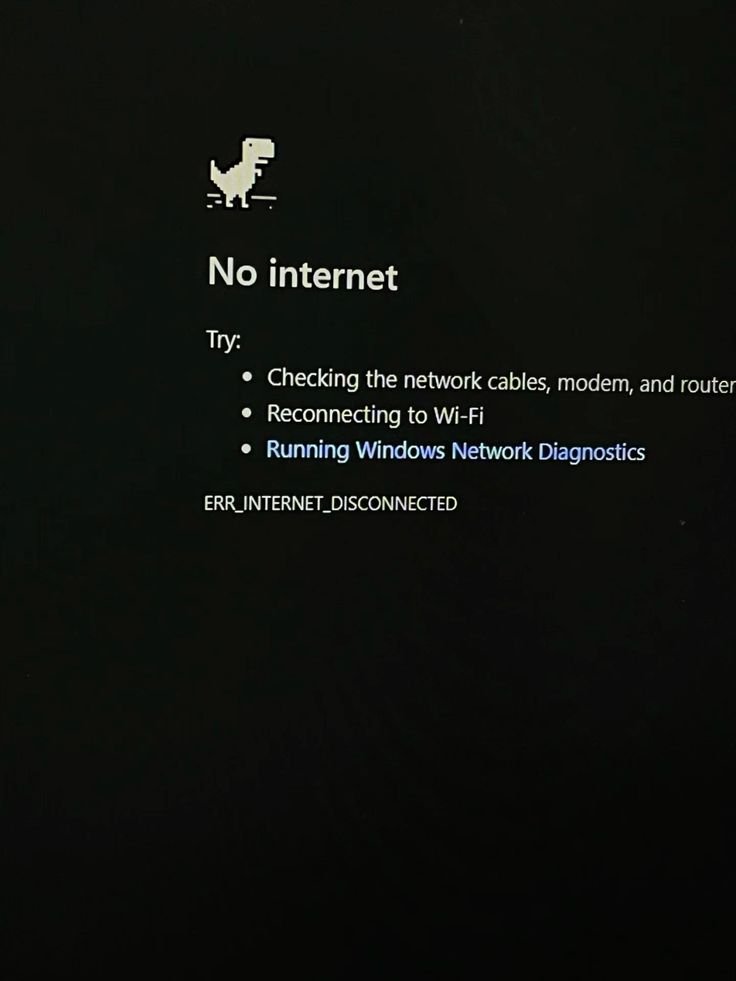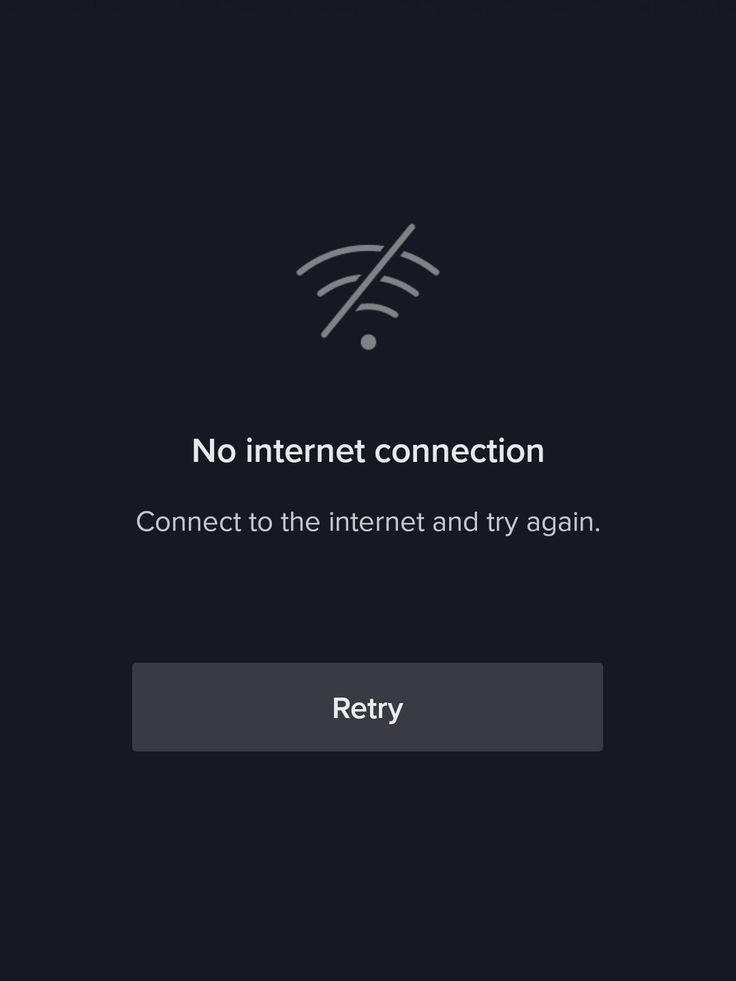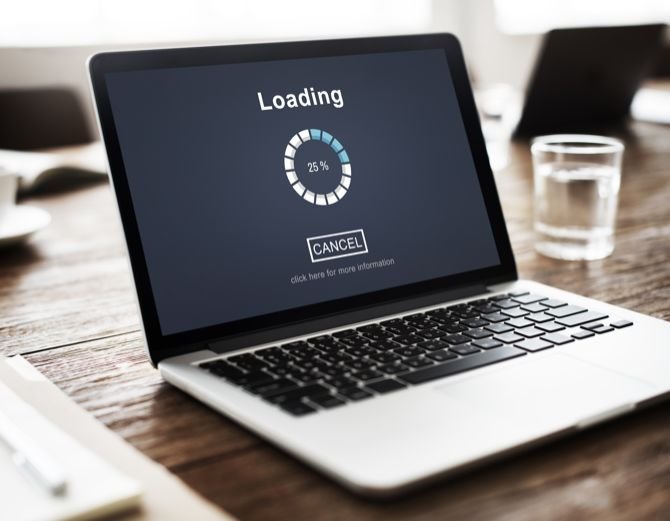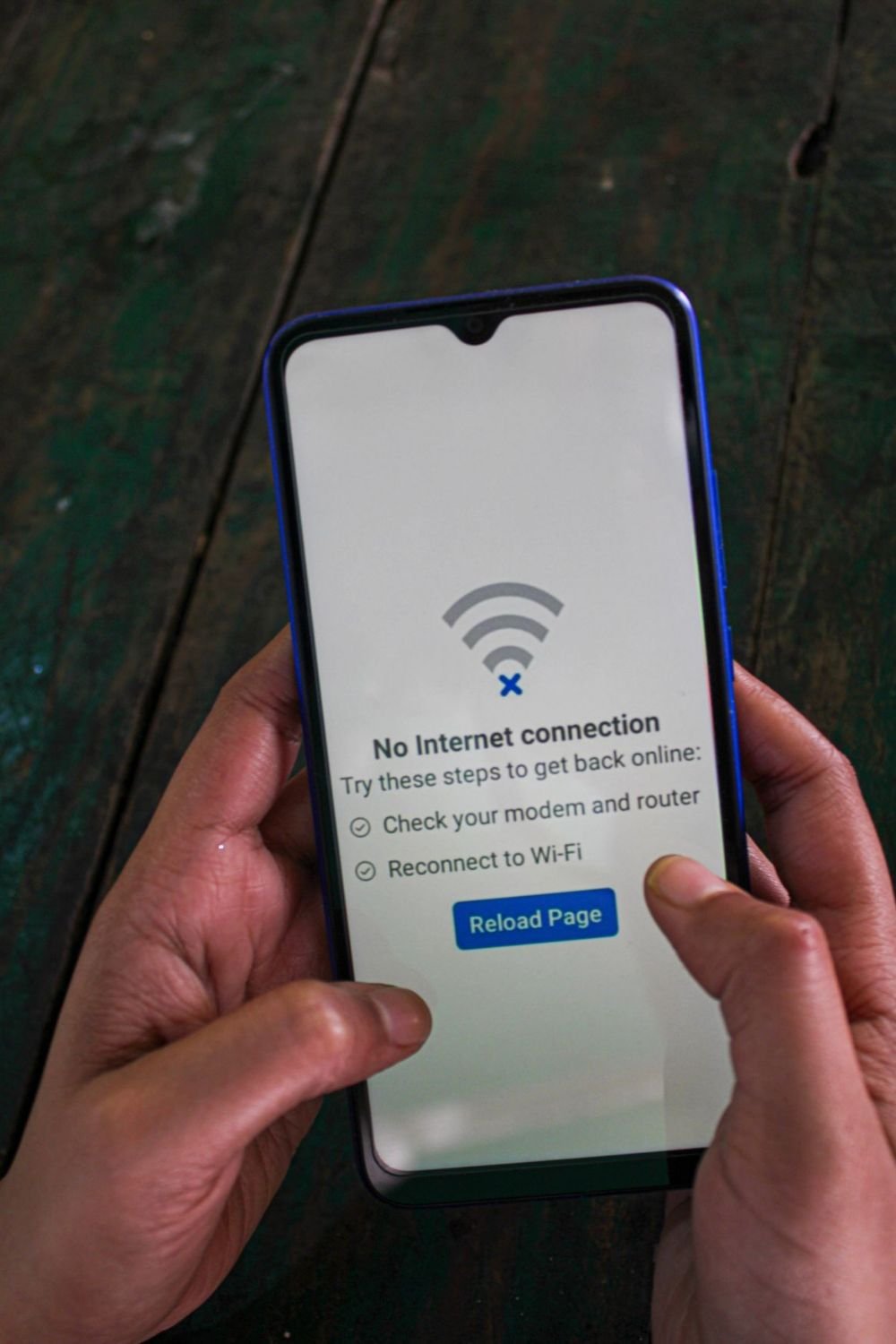In today’s connected world, a fast and reliable internet connection is not a luxury—it’s a necessity. From working from home and online learning to streaming your favorite shows and staying in touch with loved ones, we depend on a seamless online experience. So, when you find yourself asking, “Why is my internet so slow?” or “Why is my Wi-Fi so slow?”, the frustration can be immense. This comprehensive guide will help you diagnose the most common causes of slow internet and provide powerful solutions to get you back up to speed. We’ll explore everything from your home network setup to external factors, helping you identify and fix the root of the problem.

The Most Common Reasons for a Slow Internet Connection
When your Internet So Slow , it can feel like a mystery, but the causes are often simpler than you think. Understanding these factors is the first step to a solution. We will delve into a number of potential culprits, including issues with your equipment, your network, and even your Internet So Slow Service Provider (ISP). The first and most important step in troubleshooting is to isolate the problem.
Is it a slow Wi-Fi connection, or is your entire network experiencing issues? A great way to check is to run a speed test on a wired connection (using an Ethernet cable) versus a wireless one. If your wired connection is fast but your wireless connection is slow, you know the issue is with your Wi-Fi. If both are slow, the problem is likely with your modem, router, or ISP.
Let’s begin our journey by addressing the fundamental issues that can cause your Internet So Slow . The answer to “why is my internet so slow” often lies right under your nose. One of the most common reasons for a sluggish connection is an outdated or underpowered router. Just like any piece of technology, routers have a finite lifespan and are designed to handle a certain amount of bandwidth and a limited number of devices.
If you have an older router, it may not be capable of supporting the high demands of modern Internet So Slow usage, like 4K streaming and online gaming. Similarly, the issue might be with your modem. Ensuring that both your modem and router are modern and well-maintained is a crucial first step in your troubleshooting. An old device can be a major source of a Internet So Slow connection. So, if you’re wondering “why is my wireless Internet So Slow ” and your equipment is a few years old, it might be time for an upgrade.
When your Internet is so slow, it can feel frustrating, but the causes are often simpler than you think. Understanding the reasons behind a sluggish connection is the first step toward a solution. Issues can stem from your equipment, your network, or even your Internet Service Provider (ISP). To start troubleshooting, isolate whether the problem is with your Wi-Fi or your entire network. Running a speed test on a wired connection versus wireless can help identify the source. If the wired connection is fast but the Wi-Fi is slow, the problem likely lies in your wireless setup.
One of the most common culprits is outdated or underpowered equipment. Routers and modems have a finite lifespan and are designed to handle limited bandwidth and devices. Older routers may struggle to support modern internet demands like 4K streaming or online gaming. Upgrading to a modern router that supports Wi-Fi 5 (802.11ac) or Wi-Fi 6 (802.11ax) can dramatically improve speeds. Similarly, ensuring your modem is current and functioning properly is crucial—outdated equipment often causes slow Wi-Fi issues.
Your Wi-Fi Signal: A Key Culprit for a Slow Connection
The most frequent complaint among users is a slow Wi-Fi signal. While your Internet So Slow service might be perfectly fine, a weak or interrupted Wi-Fi signal can make your wifi slow and unusable. There are several reasons why this might be happening.
The physical placement of your router is critically important. Placing a router in a closet, behind a television, or in a corner of your house can severely degrade the signal. Wi-Fi signals are radio waves and can be blocked or absorbed by solid objects like walls, floors, and furniture. For the strongest signal, your router should be in a central, elevated, and open location, free from obstructions. This simple change can often solve a slow wireless Internet So Slow problem.
Another major factor causing a slow Wi-Fi connection is signal interference. Wi-Fi operates on specific frequency bands, primarily 2.4 GHz and 5 GHz. Other household devices, such as microwaves, cordless phones, Bluetooth devices, and even your neighbor’s Wi-Fi network, can operate on the same frequencies and cause interference. If your router is on the crowded 2.4 GHz band, switching to a less-congested channel can make a significant difference. Most modern routers can automatically select the best channel, but sometimes a manual selection is required. If your Wi-Fi is so slow, checking for and mitigating this interference is a powerful solution.
Even with a strong internet plan, a weak Wi-Fi signal can make your connection appear sluggish. Router placement plays a significant role in signal strength. A router hidden in a closet or tucked behind furniture can obstruct signal flow. For optimal coverage, position your router centrally, elevated, and away from thick walls or electronics.
Signal interference is another major factor. Wi-Fi operates on 2.4 GHz and 5 GHz bands, which can overlap with other household devices like microwaves, cordless phones, or Bluetooth gadgets. Neighboring Wi-Fi networks can also crowd the same channel. Switching to a less congested frequency or manually selecting a different channel often resolves slow wireless internet issues.
How to Diagnose and Fix a Slow Wi-Fi Connection
If you’re asking “why is my wifi so slow?”, here are some actionable steps you can take to troubleshoot your slow Wi-Fi and improve your network performance.
1. Reboot Your Equipment. The first and simplest step is often the most effective. Power cycling your modem and router can clear up minor glitches and network congestion. Unplug both devices, wait for about 60 seconds, and then plug the modem back in. Once the modem’s lights are stable, plug in the router. This can often resolve a temporary slow Wi-Fi issue.
2. Check for Network Congestion. If your Internet So Slow during peak hours, or when multiple devices are in use, it might be due to network congestion. Every device connected to your network—from your phone and smart TV to your laptop and gaming console—is competing for bandwidth. The more devices that are simultaneously streaming, downloading, or gaming, the slower your connection will be. Try disconnecting unused devices to see if that helps.
3. Optimize Router Placement. As mentioned before, a central and elevated location is ideal. Try to place your router high up on a shelf or wall, away from large electronic devices and metal objects.
4. Update Firmware. Router manufacturers frequently release firmware updates to improve performance and security. Check your router’s administration page to ensure its firmware is up to date. An outdated firmware can be the reason why your wifi is so slow.
5. Consider a Wi-Fi Extender or Mesh System. For large homes or spaces with many walls, a single router may not be enough to provide a strong signal everywhere. A Wi-Fi extender can amplify the signal to hard-to-reach areas, while a mesh Wi-Fi system uses multiple access points to create a single, seamless network throughout your home. This is a great solution when your wireless Internet So Slow in certain rooms.
6. Secure Your Network. An uninvited guest on your network can be a major reason for Internet So Slow . Make sure your Wi-Fi network is secured with a strong password and WPA2 or WPA3 encryption. If your network is open, or has a weak password, anyone can connect and steal your bandwidth.

Broader Issues: When the Problem Isn’t Your Wi-Fi
Sometimes, the issue isn’t with your Wi-Fi signal but with your Internet So Slow connection itself. When a wired connection is also slow, you need to look at other potential causes.
1. ISP Throttling or Network Congestion. Your Internet So Slow Service Provider (ISP) might be the reason for your slow internet. ISPs sometimes intentionally slow down your connection, a practice known as throttling, often to manage network traffic during peak hours. You can use a VPN (Virtual Private Network) to test if this is the case, as a VPN can obscure your activity from your ISP. Another possibility is network congestion on your ISP’s side, where too many users in your area are on the network at the same time. This is a common issue when your internet is so slow in the evenings.
2. Outdated Hardware and Drivers. It’s not just your router; your computer’s network adapter and its drivers can also be a source of a Internet So Slow connection. Ensure that your device drivers are up to date. Outdated drivers can lead to poor performance and connectivity issues.
3. Malware or Viruses. Malicious software running in the background can consume your bandwidth and cause your Internet So Slow . Run a full system scan with a reputable antivirus program to check for any malware that might be affecting your connection.
4. Check Your Subscription Plan. Are you getting the speed you’re paying for? Use an online speed test tool like Ookla’s Speedtest to measure your download and upload speeds. If the results are consistently lower than what your plan promises, contact your ISP. It’s possible you need to upgrade your plan to meet your household’s demands. Remember, a plan with a higher bandwidth capacity can solve a slow wifi problem.
The problem of Internet So Slow can be maddening, but by systematically troubleshooting the common causes, you can often find a solution. Start with the basics: check your equipment, optimize your router’s placement, and secure your network. If the problem persists, investigate potential issues with your ISP or devices. By following these steps, you will be well on your way to a faster, more reliable connection. While the question “why is my wireless internet so slow” is a common one, the answer is often within your control. Take charge of your network, and you’ll find that many of these problems have straightforward solutions.
A common question that arises is, “Why is my wifi so bad?” This is a broader question that can include not just slow speeds, but also frequent disconnections. The solutions for a “bad” Wi-Fi experience are often the same as those for a slow one, as a weak signal or high interference can lead to both. Ensuring your router is up-to-date, centrally located, and free from interference is a powerful way to improve the overall quality of your wireless connection. If your wireless Internet So Slow that it’s unusable, it’s time to take action.

When your internet is so slow, it’s crucial to be patient and methodical. You don’t want to rush to buy new hardware without first identifying the problem. First, restart everything. Second, run a speed test on both a wired and wireless connection. This will help you determine if the problem is specific to your Wi-Fi or if it’s a broader issue. If the problem is your wifi slow, start by repositioning your router and checking for other devices that might be causing interference. If your entire Internet So Slow connection is suffering, you might need to contact your ISP or investigate issues with your modem or other connected devices. The key is to eliminate possibilities one by one.
Finally, remember that the speed advertised by your ISP is often a “maximum” speed and not a guaranteed one. Factors like time of day, network congestion in your area, and the number of connected devices in your home all affect your actual speeds. Understanding these limitations and taking proactive steps to optimize your home network can drastically improve your experience. While it can be frustrating to ask, “why is my internet is so slow“, there are many resources and tools available to help you find the solution. Don’t give up! A little investigation can lead to a much faster, more reliable connection.
Related Post: 10 Frustrating Mobile Notifications Problems and Proven Fixes

